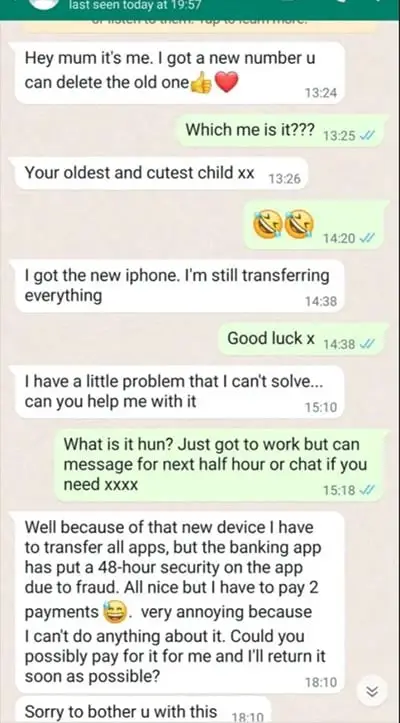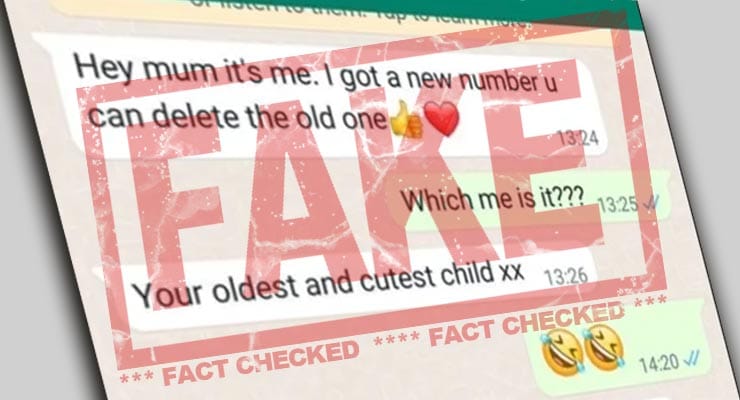Beware WhatsApp “hey mum” phishing scam spreading
A new WhatsApp phishing scam is spreading whereby crooks are pretending to be the family member of the victim in order to trick them into sending cash.
Spreading primarily in the UK, the scam begins with an unsolicited WhatsApp message sent to the victim from what appears to be a family member who has recently changed their phone number. Currently these scam messages start with generic greetings such as “hi mum”.
The scammers, posing as the family member, will then proceed to request the victim send money urgently. If the victim complies, they will ultimately be lured into sending money to cyber crooks.
See an example of such a scam message below.

A few observations…
Firstly, the scammers do not appear to know the name of their intended target, or the names of their family members, which is why they use the generic greeting “hey mum”. The crooks are hoping their messages will land in the WhatsApp inbox of a target who is a mother, and thus will assume the message is from one of their children.
Of course the crooks can easily swap out these generic greetings for others, such as “hi dad” or “hi sis” etc.
Secondly, the English in these messages is far better than many phishing scams we’re used to seeing, suggesting the perpetrators are from an English speaking country, possibly the UK itself. The ability to speak using common English slang makes these messages extremely convincing.
Sponsored Content. Continued below...
In the messages themselves, the crook – posing as the family member – will claim they’ve recently changed their phone number, hence why the message appears to come from an unknown contact.
They will also use some social engineering trick to lure the target into sending money. We have already seen examples of crooks using the stories of cancelled bank accounts and getting mixed up with loan sharks to lure victims into paying out.
The advice here is to never assume that a family member has changed their phone number until you can speak to them over the phone or – better yet – face to face. You should also never send money to a friend or family member until, again, you’ve spoken to them over the phone or face to face and are confident it really is them to made the request, and not someone impersonating them.
Continued below...
Thanks for reading, we hope this article helped, but before you leave us for greener pastures, please help us out.
We're hoping to be totally ad-free by 2025 - after all, no one likes online adverts, and all they do is get in the way and slow everything down. But of course we still have fees and costs to pay, so please, please consider becoming a Facebook supporter! It costs only 0.99p (~$1.30) a month (you can stop at any time) and ensures we can still keep posting Cybersecurity themed content to help keep our communities safe and scam-free. You can subscribe here
Remember, we're active on social media - so follow us on Facebook, Bluesky, Instagram and X
